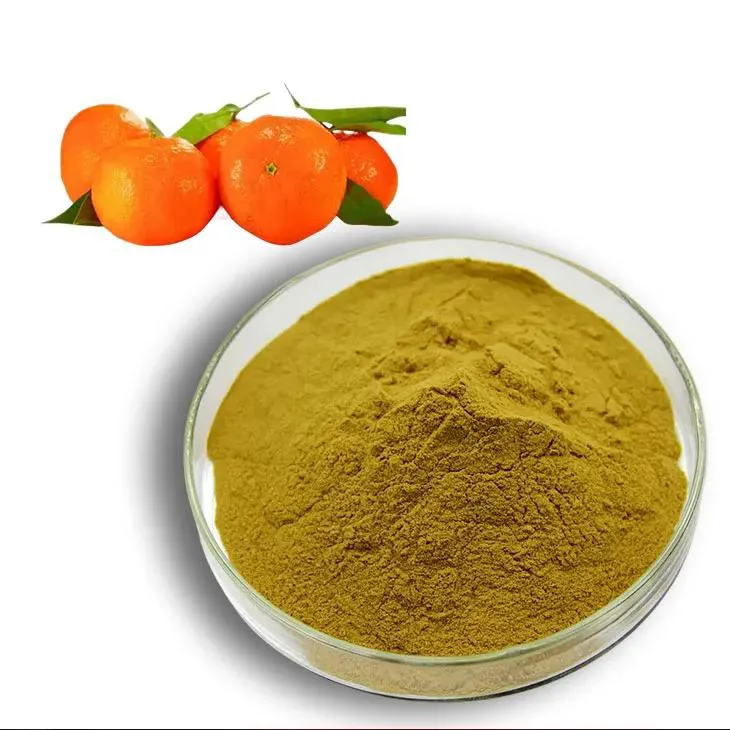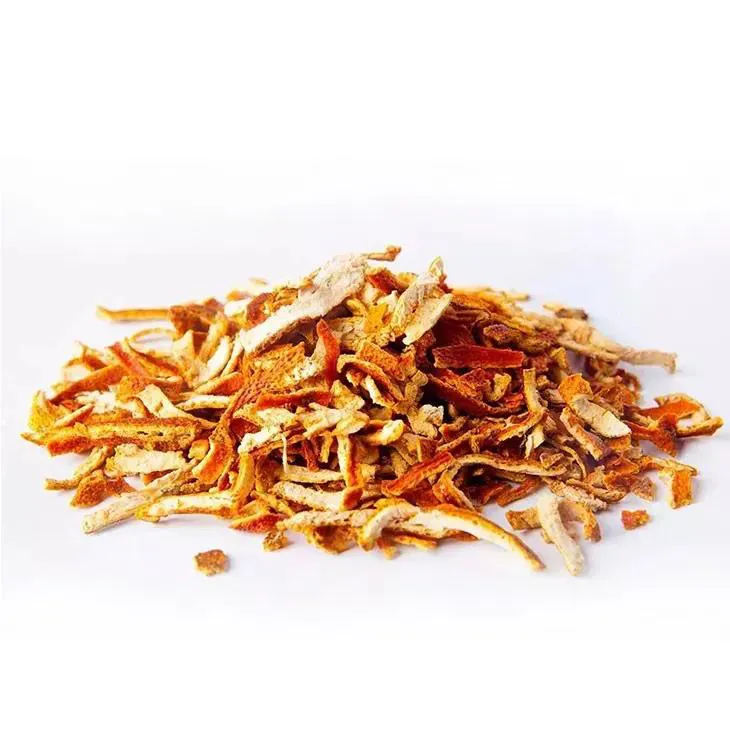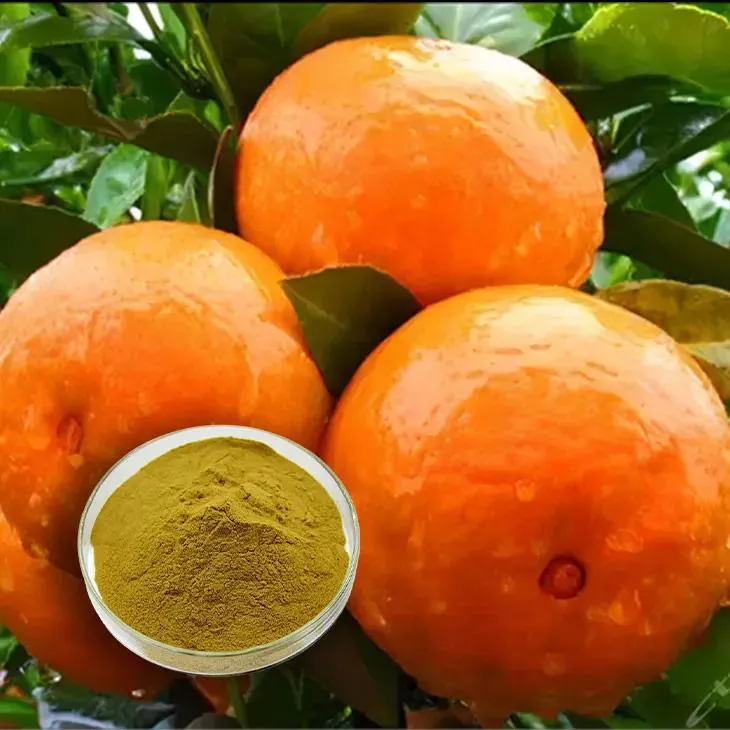- 0086-571-85302990
- sales@greenskybio.com
What Are the Symptoms of Citrus Bioflavonoids Deficiency?
2025-10-25

Citrus bioflavonoids are a group of naturally occurring plant compounds found predominantly in the peel, pulp, and juice of citrus fruits such as oranges, lemons, limes, and grapefruits. These compounds, also known as vitamin P, are structurally related to flavonoids and are recognized for their potent antioxidant properties, vascular support, and role in enhancing the absorption of vitamin C. Although research on citrus bioflavonoid deficiency is still evolving, insufficient intake of these compounds can manifest in subtle but significant ways affecting cardiovascular health, immunity, and overall wellness.
What Is Citrus bioflavonoids Deficiency?
Citrus bioflavonoids deficiency occurs when an individual does not consume adequate amounts of these flavonoid compounds over a prolonged period. Unlike essential vitamins such as vitamin C or B12, bioflavonoids are not classified as essential nutrients, and there are no universally established recommended daily allowances. However, low dietary intake can compromise their synergistic role with vitamin C, particularly in maintaining capillary integrity, reducing oxidative stress, and supporting immune function. Deficiency is often observed in populations with low fruit and vegetable consumption or in individuals relying heavily on processed foods lacking bioactive plant compounds.

How Does Bioflavonoid Deficiency Affect the Cardiovascular System?
One of the most pronounced effects of low citrus bioflavonoid intake is on the cardiovascular system. Bioflavonoids help strengthen capillaries, reduce vascular permeability, and support overall blood vessel integrity. When these compounds are deficient, individuals may experience increased bruising, spontaneous bleeding, or petechiae, small red or purple spots on the skin caused by minor capillary ruptures. Long-term deficiency can also contribute to heightened oxidative stress in blood vessels, increasing susceptibility to conditions such as hypertension, atherosclerosis, and other cardiovascular complications. The absence of bioflavonoids can diminish the protective synergy with vitamin C, which is vital for collagen synthesis in blood vessel walls.

What Are the Immune System Symptoms of Bioflavonoid Deficiency?
Citrus bioflavonoids play a significant role in immune function due to their antioxidant activity and modulation of inflammatory pathways. A deficiency can weaken the body’s defenses, making individuals more prone to frequent infections, such as colds, flu, and other viral or bacterial illnesses. Moreover, chronic low intake may contribute to slower wound healing, as bioflavonoids enhance collagen formation and reduce oxidative damage in tissues. Subtle signs such as persistent fatigue or prolonged recovery from illness can also be associated with insufficient bioflavonoid intake, particularly when paired with low vitamin C consumption.

Are There Skin and Connective Tissue Symptoms?
Yes, inadequate bioflavonoid intake can affect skin health and connective tissues. Bioflavonoids support collagen integrity and improve skin elasticity by scavenging free radicals and reducing inflammation. Deficiency may manifest as dull, dry skin, increased bruising, or slow-healing cuts and abrasions. In combination with low vitamin C, individuals may develop more pronounced issues such as gum inflammation, bleeding gums, or minor joint discomfort. While these symptoms are often mild in early stages, chronic deficiency can contribute to long-term structural weakness in connective tissues, leading to reduced resilience and greater susceptibility to injuries.
How Does a Deficiency Affect Blood Sugar and Metabolic Health?
Citrus bioflavonoids have been studied for their role in glucose metabolism and insulin regulation. Low intake may impair their antioxidant and anti-inflammatory effects, which help stabilize blood sugar levels. Individuals with chronic low bioflavonoid consumption may experience fluctuations in blood sugar or a higher risk of insulin resistance over time. While these effects are typically subtle, they highlight the importance of bioflavonoids in maintaining metabolic balance, particularly when combined with a nutrient-poor diet lacking fiber and other phytonutrients.
Can Deficiency Lead to Neurological Symptoms?
Emerging research suggests that citrus bioflavonoids may contribute to neurological health through their neuroprotective antioxidant activity. Inadequate intake may subtly affect cognitive function, including concentration, memory, and mood regulation. While severe neurological impairment is unlikely solely due to bioflavonoid deficiency, long-term low intake may exacerbate oxidative stress in neuronal tissues, potentially influencing the progression of age-related cognitive decline or increasing vulnerability to neuroinflammatory conditions.
What Gastrointestinal or Digestive Symptoms Might Occur?
Bioflavonoids can influence gut health by modulating inflammation, enhancing nutrient absorption, and supporting the gut microbiome. Deficiency may lead to minor digestive disturbances such as bloating, irregular bowel movements, or a decrease in beneficial gut bacteria diversity. Although these symptoms are generally non-specific, they can serve as subtle indicators of insufficient intake, particularly when combined with low fruit and vegetable consumption.
Are Fatigue and General Malaise Related to Deficiency?
Yes, individuals with insufficient citrus bioflavonoid intake may report general fatigue, low energy, or malaise. This is often due to the combined effects of impaired vascular function, oxidative stress, and reduced immune efficiency. While fatigue is a non-specific symptom, its persistence in individuals with low fruit intake may indicate a broader nutrient deficiency, including bioflavonoids and vitamin C. Incorporating bioflavonoid-rich foods such as citrus fruits, berries, and certain vegetables may improve overall energy and resilience.
How Can Bioflavonoid Deficiency Be Prevented?
Preventing citrus bioflavonoid deficiency is largely dietary. Consuming a variety of fruits and vegetables, particularly citrus fruits, ensures adequate intake. Specific strategies include:
Eating fresh oranges, grapefruits, lemons, or limes daily
Including citrus peel zest in cooking, as flavonoids are concentrated in the peel
Combining fruits with other plant-based foods to enhance absorption
Considering supplements if dietary intake is insufficient, especially in populations at risk such as older adults or individuals with restricted diets
Maintaining a balanced diet rich in phytonutrients supports vascular integrity, immune function, and overall health.
What Are the Key Takeaways About Citrus Bioflavonoid Deficiency?
While citrus bioflavonoid deficiency is rarely severe due to their presence in many fruits and vegetables, inadequate intake can subtly affect multiple body systems. Early symptoms may include:
Increased bruising and fragile capillaries
Gum inflammation and delayed wound healing
Frequent infections or prolonged recovery from illness
Dull or dry skin and connective tissue weakness
Fluctuating blood sugar and low energy
Minor digestive disturbances
Because citrus bioflavonoids enhance vitamin C activity and act as antioxidants, ensuring sufficient intake is a simple yet effective strategy to maintain cardiovascular, immune, and metabolic health. Incorporating a variety of citrus fruits and other flavonoid-rich foods into the daily diet is the most practical approach for prevention.
Conclusion:
Citrus bioflavonoids play an important role in human health by supporting blood vessel integrity, immune function, skin health, and metabolic balance. Deficiency is often subtle, manifesting as increased bruising, gum issues, fatigue, or minor digestive disturbances. By understanding the early symptoms, individuals can take proactive steps to enhance dietary intake through citrus fruits, other flavonoid-rich foods, and potentially supplements when necessary. Maintaining adequate bioflavonoid consumption ensures optimal antioxidant protection, synergistic effects with vitamin C, and overall physiological resilience.
Visit Greenskybio.com, a great article source where you can learn about Supplements and their health benefits, you also can get the latest food Supplements. Green Sky Bio provides the best extracts and supplements. It is a Chinese self-developed brand that is trustworthy! Welcome to email us to inquire about our products.
- ▶ Hesperidin
- ▶ Citrus Bioflavonoids
- ▶ Plant Extract
- ▶ lycopene
- ▶ Diosmin
- ▶ Grape seed extract
- ▶ Sea buckthorn Juice Powder
- ▶ Fruit Juice Powder
- ▶ Hops Extract
- ▶ Artichoke Extract
- ▶ Mushroom extract
- ▶ Astaxanthin
- ▶ Green Tea Extract
- ▶ Curcumin
- ▶ Horse Chestnut Extract
- ▶ Other Product
- ▶ Boswellia Serrata Extract
- ▶ Resveratrol
- ▶ Marigold Extract
- ▶ Grape Leaf Extract
- ▶ New Product
- ▶ Aminolevulinic acid
- ▶ Cranberry Extract
- ▶ Red Yeast Rice
- ▶ Red Wine Extract
-
Green coffee bean Extract
2025-10-25
-
Yam Extract
2025-10-25
-
Withania Somnifera Extract
2025-10-25
-
Pueraria Lobata Extract
2025-10-25
-
Dandelion Leaf Extract
2025-10-25
-
Sophora Japonica Flower Extract
2025-10-25
-
Thunder God Vine Extract
2025-10-25
-
Selenium yeast
2025-10-25
-
Phyllanthus Emblica Extract
2025-10-25
-
Cassia Seed Extract
2025-10-25





















